It is nine weeks since Sheffield Wednesday last played a home game but the flyposting around Hillsborough helps to illustrate a long summer of rancour.
“Chansiri out” is the simple, scrawled message, set against a collage of cult heroes and trophy lifts.
Wednesday’s happiest recent times in the early 1990s, when they were regulars in the upper echelons of the top flight and frequent travellers to Wembley in cup competitions, seem a long time ago. It is 25 years since they were last in the Premier League and Wednesday now resemble a decaying club under the ownership of Dejphon Chansiri, a 57-year-old businessman whose family own the Thai Union Group (TUG), the world’s largest producer of canned tuna. The money has dried up and so, too, has hope.
The summer has brought no respite to the anxiety. The majority of Wednesday’s first-team players have gone through June without pay, prompting the English Football League (EFL) to impose a transfer ban that will run until 2027. Another payday came and went on Monday of this week, again with the bulk of staff going unpaid.
Last Thursday was supposedly the first day of pre-season for the Wednesday squad, but talented head coach Danny Rohl was not there to greet players: he had signalled his intent to move on as far back as April. Most of his support staff, too, formally saw their contracts expire on June 30.
No friendly games have been announced, nor any pre-season tour. With the new season beginning in six weeks, it feels unlikely that Wednesday will be in any fit state to tackle it.
Not with two EFL transfer embargoes now in place. One for the non-payment of players, the other for taxes owed to HM Revenue and Customs. The latter liability, as per the league’s regulations, was self-reported last week and made public on Friday. It promises to make it a summer rebuild with two hands tied.
This is a club crying out for a fresh start but Chansiri has refused to grant it. A rare public statement, issued last week, reiterated his willingness to sell but negotiations with two consortiums in the last month have failed to reach an agreement at a time when there is no money left to meet the wage obligations.
Chansiri said one group, led by Sheffield-born businessman Adam Shaw and American real estate investor John Flanagan, had offered £40million ($55m) and “limited future Premier League promotion payments” but had deemed that short of his expectations. There were apologies, too, for the financial strain but weary fans no longer wish to hear them.
“I do think there’s a genuine concern about the future,” says James Silverwood of the Sheffield Wednesday Supporters Trust. “Look at other clubs who have found themselves in similar situations with this type of owner, and it’s not a happy story.
“The manager, the lack of preparation, the transfer window bans… They’re all concerns but they speak to a deeper concern about what the future is going to bring.”
The Athletic has spoken to numerous members of staff, past and present, as well as agents and associates, to tell the story of Chansiri’s turbulent reign, all on the condition of anonymity to protect working relationships.
One of English football’s oldest clubs is in distress and nobody can be sure where the suffering might end.
Wednesday have become the EFL’s greatest headache this summer.
Dai Yongge’s inglorious and overdue exit from Reading, selling up to U.S. businessman Rob Couhig in May, has shifted focus to Hillsborough, where the reserves have seemingly run dry.
The EFL’s chief executive Trevor Birch and chief operating officer Nick Craig were among representatives of the governing body to host a meeting with Wednesday fans on June 6, vowing to help “facilitate a sustainable outcome”.
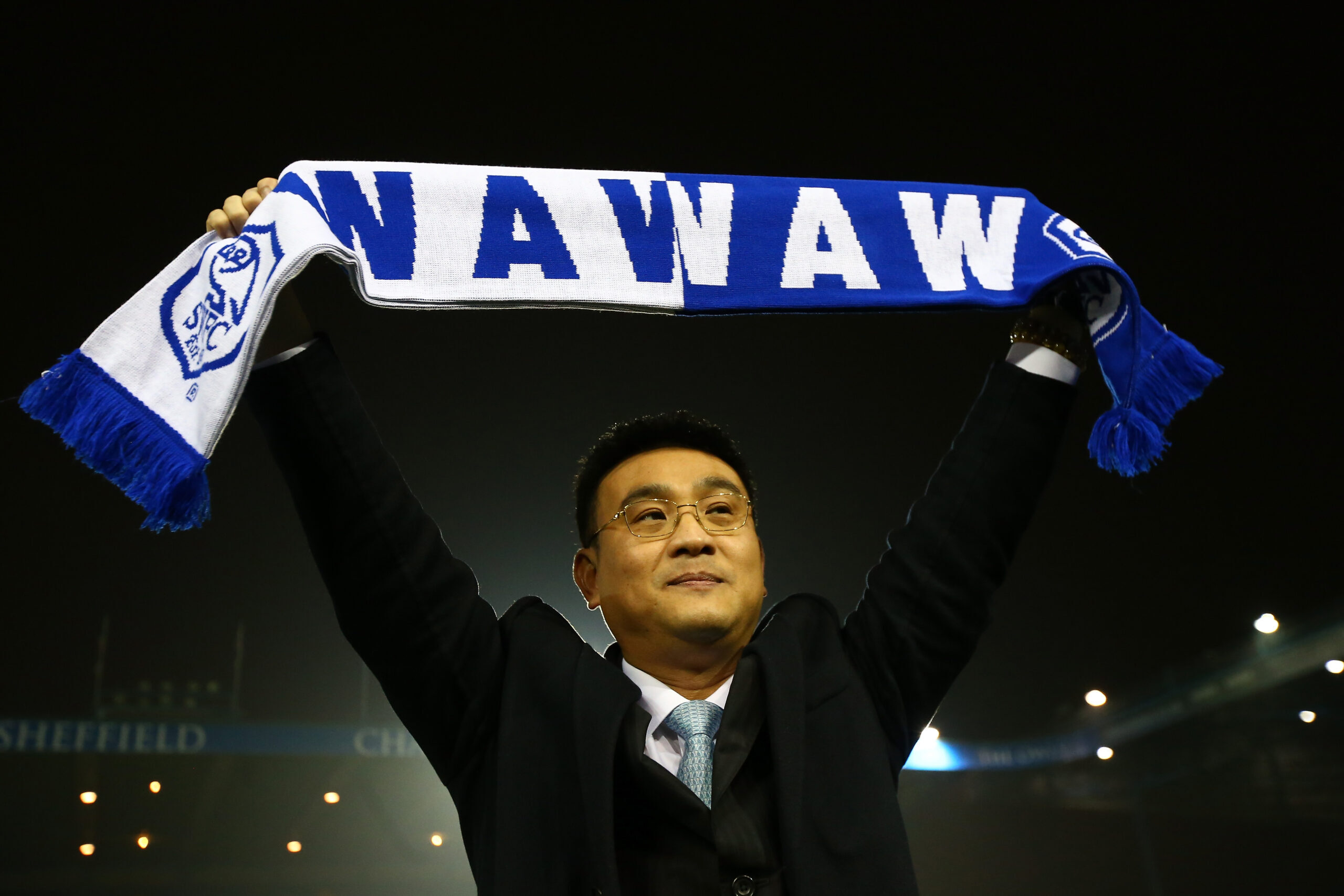
Chansiri at Hillsborough in 2015 (Matthew Lewis/Getty Images)
The late payment of wages has been a common thread of Chansiri’s reign but never to this extent. Salaries for March came late, repeating a scenario from 2021, when the club failed to meet its obligations in four consecutive months to incur another EFL charge. Only the Covid-19 pandemic brought leniency on that occasion and a suspended six-point penalty.
Wages for May were late across the board and, at the time of writing, were still overdue to the majority of the first team. The Athletic has been told that only a small number of first-team players have at least been paid in full for May, with preference given to those considered assets.
There would be a good reason for that. FIFA rules stipulate that any player failing to receive two monthly salaries on their due date can serve a 15-day notice to their club for payments to be settled. If the cash is not forthcoming, they are able to leave as a free agent. Those with a reasonable market value seem to have been denied that opportunity but others will be free to do so after another payday was missed for the first-team squad on Monday.
The Professional Footballers Association has taken a dim view, calling Wednesday’s actions “unacceptable”. Only 16 senior players have contracts running into next season at this stage but the EFL sanction, one that Wednesday have appealed, will not allow fees to be paid for any new permanent or loan signings in the next three transfer windows.
The non-playing staff eventually got their salaries in full 12 days late into June after being given the option of accessing emergency funds through their line manager or department head. “Unforeseen delays” was the only explanation given to staff in emails sent by the club’s HR department and seen by The Athletic.
“He (Chansiri) would want to save face if he possibly could,” says one former staff member. “We were paid late four or five times and it was never a conversation he would relish someone having to do on his behalf.
“He always tried to ensure he looked after the lower earners. They’d be the ones he paid. That’s what has made me think, ‘There must be a problem here’ now because even those weren’t being paid on time.”
Some people who have worked with Chansiri call him “well-intentioned”, but finding advocates of his management is increasingly difficult. “He doesn’t listen to anyone,” feels one person familiar with Chansiri’s methods. “He doesn’t want or take advice.”
Chansiri does not operate a board of directors and is the only shareholder in the club he has owned for over a decade. According to documents filed at the UK’s Companies House, no other figure has held a position of authority at Wednesday since Katrien Meire stepped down as chief executive in February 2019 after a brief spell in the post. Chansiri has effectively sailed this ship alone.
Few staff members are in direct contact with Chansiri, who has preferred to use Line — a messaging and social networking app, similar to WhatsApp — to send and receive messages. UK staff would typically have to download it to speak with him.
“He has the final say on everything, not just football,” says one former associate, who believes Amadeu Paixao, the Portuguese agent unofficially employed as a club advisor, was one of the few with the potential to shape Chansiri’s thinking.
One former employee calls him a “control freak”, someone compelled to involve himself in even the smallest of decisions. They said that Chansiri would want to see evidence of three quotes having been sourced on even basic equipment or supplies, proving the cheapest available option had been sought.
That image jars with the excess of Chansiri’s opening years in charge. Of the £167million he is estimated to have invested in Wednesday since 2015, including the purchase price of £37.5m, the bulk was injected during the years where promotion to the Premier League came agonisingly close. Wednesday finished in the play-offs in consecutive seasons in 2016 and 2017 but lost in the final against Hull City and semi-finals to Huddersfield Town, respectively.
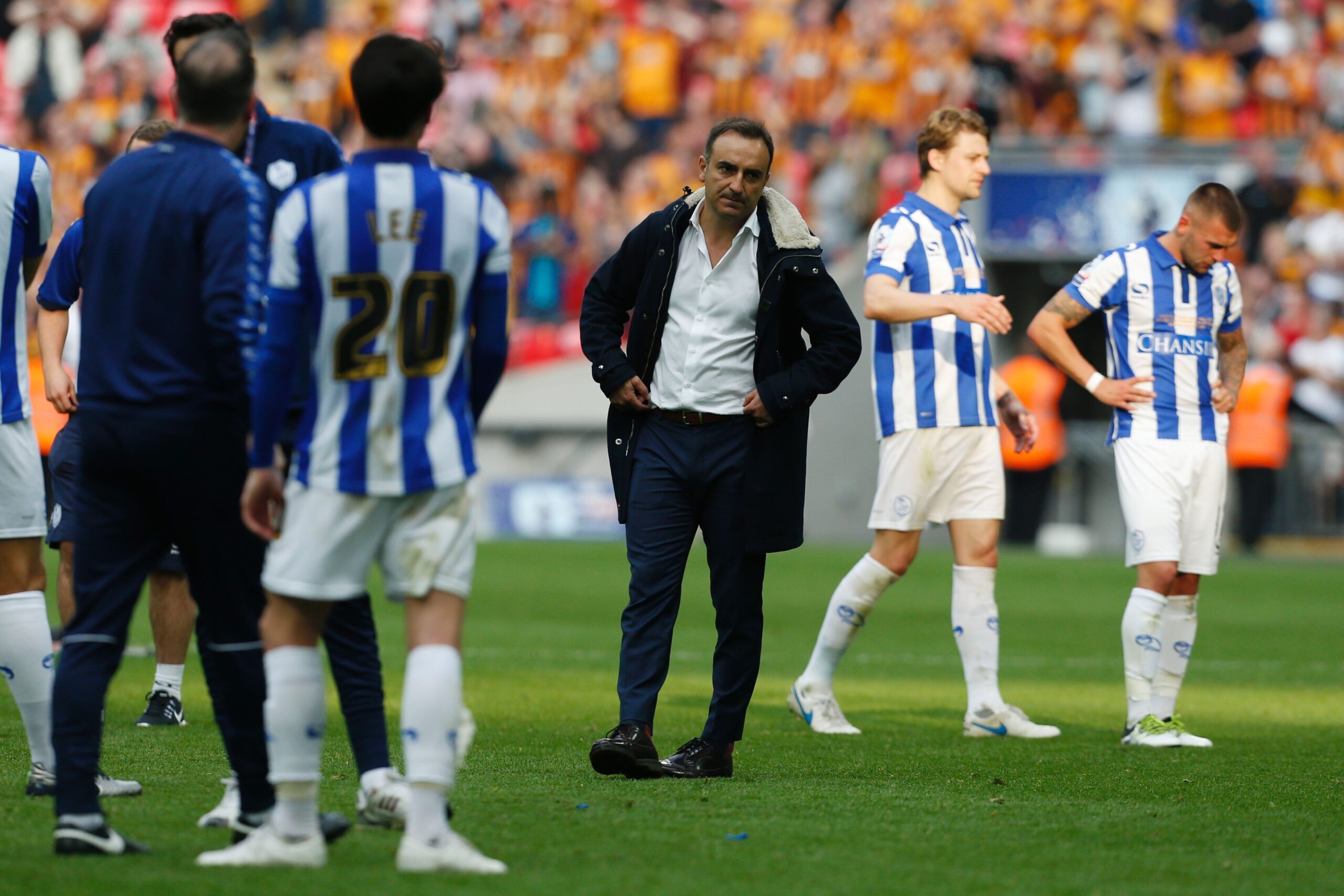
Then Wednesday manager Carlos Carvalhal at Wembley in 2016 after the play-off final defeat by Hull (Ian Kington/AFP via Getty Images)
With parallels to the recent demises of Derby County and Reading, aiming for the stars resulted in a breach of the EFL’s profit and sustainability rules.
Chansiri had attempted to circumvent the limitations by selling Hillsborough for £60m to a company he owned — Sheffield 3 Limited — but it could not be included in the accounting year that needed profit recorded. An initial 12-point deduction from the EFL was reduced to six in 2020 but proved decisive in their relegation to League One.
Chansiri’s investment has been minimal since but it has not prevented cash flow issues. A £2m bill owed to His Majesty’s Revenue and Customs brought an EFL registration embargo in 2023; Chansiri said in an interview with the Sheffield Star newspaper that 20,000 fans could solve the problem by each contributing £100. Chansiri paid off that HMRC bill days later but it has been seen as the point his relations with supporters began to plummet.
Chansiri has gradually built up an unflattering image as being awkward, combustible and intransigent.
Silverwood, a founding member of the Supporters Trust, met Chansiri three times during the 2021-22 season in the hope of forming stronger relations. The Trust would be left disappointed, with lines of communication now cut. Their latest step, with a “heavy heart”, was to call for an immediate boycott of all official club merchandise and retail yesterday.
Silverwood’s impressions of Chansiri, unsurprisingly, are far from positive. “He quite obviously holds fans in disdain,” he says. “He’s someone who’s not used to being challenged and also temperamentally incapable of taking criticism in any form.
“He’s a prickly character. He’s difficult to talk with because you’re not really having a dialogue. The way he likes to converse is that you fire a short question at him and he responds with a monologue. You’re not having a conversation back and forth. You’re being talked at.”
Chansiri has said little during this turbulent summer but it is not true to say that he has shied away from direct contact with supporters. A fans’ forum held in January spanned five hours, with the owner eager to deliver his messaging in the middle of a transfer window that undermined any hope of gatecrashing the Championship’s top six.
A working relationship with Rohl unravelled, with January additions failing to meet the head coach’s requirements to secure a play-off position. Wednesday would eventually finish 12th, their highest standing since 2018-19, but Rohl indicated his wish to find a new challenge for 2025-26.
The last weeks have been emblematic of a chaotic summer. Rohl was informed that he should return to work on June 12, two weeks before his players. This was ignored, with Rohl’s representatives eventually beginning negotiations over his exit last week.
Chansiri can now look forward to working with his 10th manager since taking over, a turnover rate that has added to the sense of instability.
Even when Wednesday did generate positive momentum in 2023, when they won promotion back to the Championship after a remarkable play-off campaign which included coming back from 4-0 down against Peterborough United in the semi-finals, manager Darren Moore left 21 days later by mutual consent.
The replacement, Xisco Munoz, failed to even reach the October international break after failing to win any of Wednesday’s opening 10 Championship games. “Chansiri burst the bubble as soon as it was blown up,” says one former member of staff.
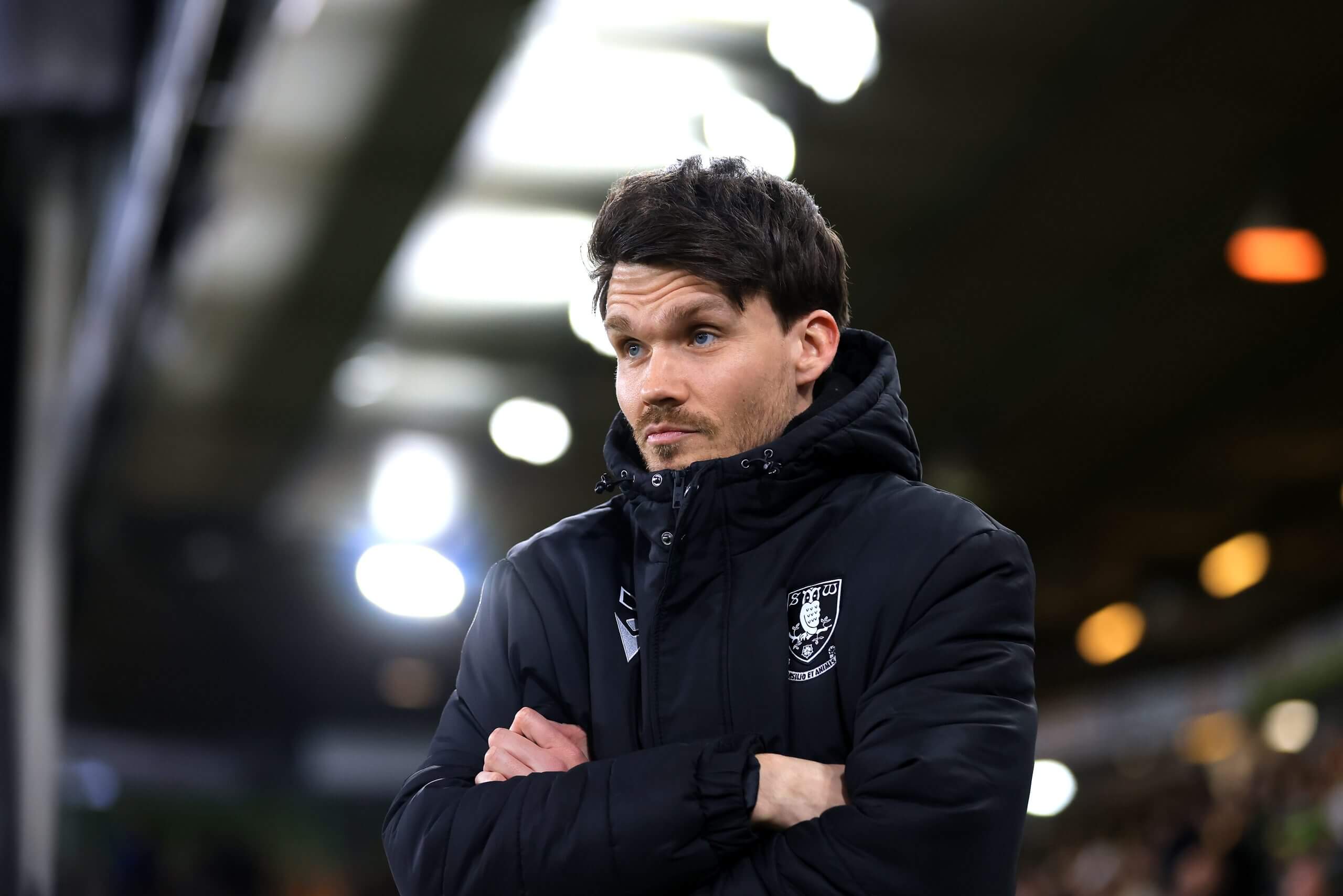
Rohl has impressed as Wednesday manager (Stephen Pond/Getty Images)
Those who worked with Chansiri saw that point as a wasted opportunity. A wage bill that climbed as high as £42.4m in 2017-18 had been cut, ensuring the two seasons in League One bucked the dangerous five-year trend of wages exceeding turnover.
Any time spent in the third tier would be considered ignominious for a club of Wednesday’s size but it had at least acted as a financial reset. The 2023-24 season in the Championship, the most recent for which accounting figures are known, was another season of moderation.
Chansiri, though, chose to roll the dice again. Ike Ugbo was signed for £2.5m from Troyes last summer in a deal that bucked the trend of frugality. The former Celtic and Southampton midfielder Stuart Armstrong, signed from Vancouver Whitecaps in January, was another to join the club’s highest earners. That short-term deal expired this week and it is thought Armstrong will be among those waiting on overdue wages.
“He’s not stupid but he’s probably a gambler,” says one former staff member. “It’s that chance to get back into the Premier League, isn’t it? The clever thing to do would’ve been to get back to the Championship and sell it because it had reset. But he can’t let go of it because it’s that chance to get to the Premier League.”
Hillsborough, Sheffield Wednesday’s home since 1899, has come to symbolise the Chansiri era. Weeds sprout from the top of walls and there are panels missing from the facade of the club’s megastore on Penistone Road. Shirts carrying the name and number of Barry Bannan, who does not have a contract for the coming season but has continued to train in the last week, are displayed opposite the entrance.
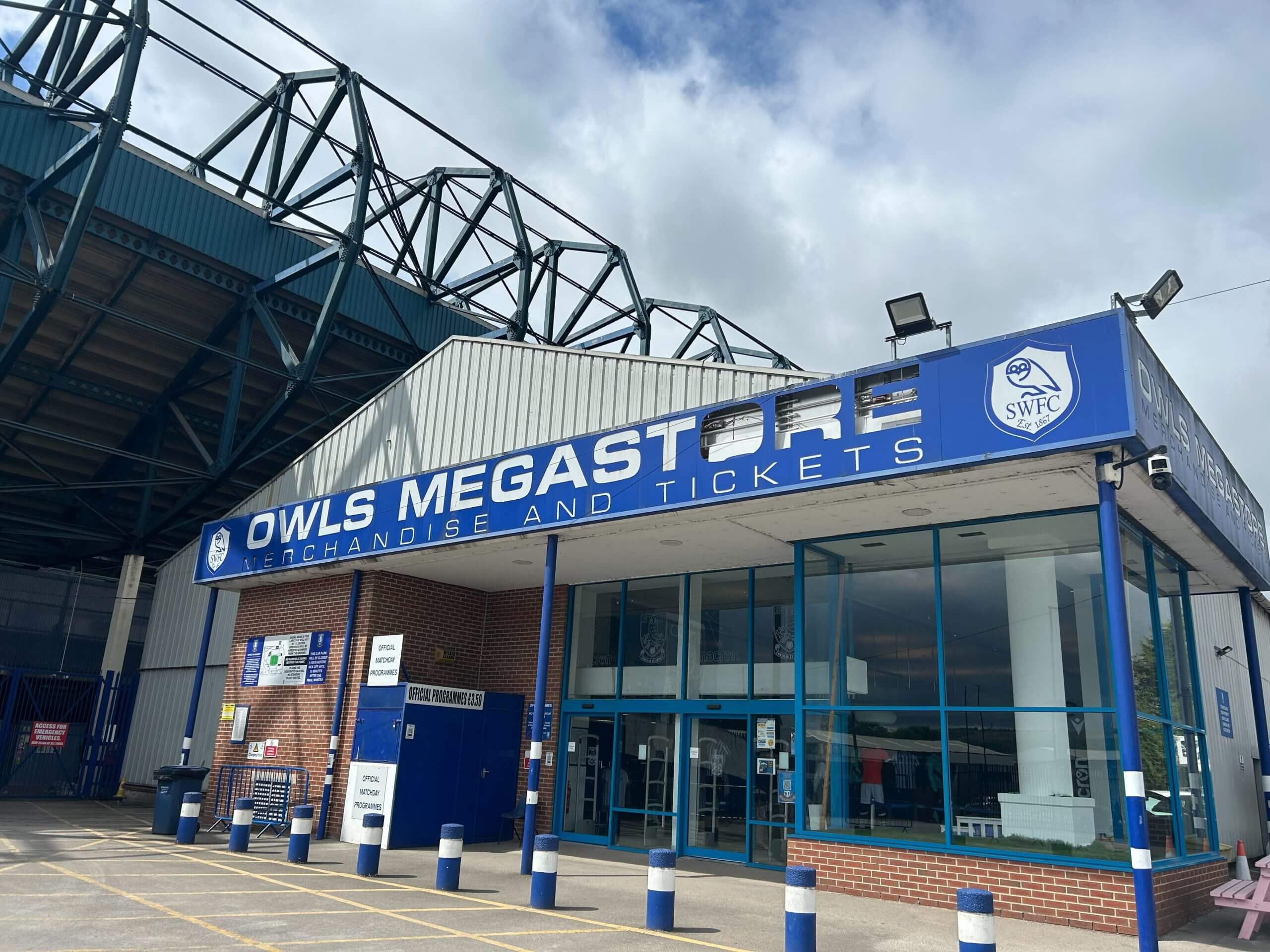
(Phil Buckingham/The Athletic)
It will be the largest venue by capacity in the Championship next season, at 34,835, but Hillsborough is tired and, in places, scruffy. The only visible upgrade in the week that pre-season was scheduled to begin was a coat of blue paint being applied to the exit gates of the West Stand, once known as the Leppings Lane End, where 97 Liverpool fans lost their lives in 1989. The Athletic reported last August on the safety concerns raised in the 2023-24 season.
Wednesday have pointed more proudly to the upgrades on the training facility at nearby Middlewood Road. This summer, they say, has brought “significant investment” in facilities that had irritated Rohl but even that has come with complications.
Renovation work is expected to leave training pitches unplayable until the start of next week at the earliest, a point when the first-team squad will begin a week St George’s Park, the training home of the England national teams. Players returned to pre-season testing on Thursday, taking on individual programmes amid the disruption, but this is expected to be a build-up beset by distractions.
Chansiri’s long statement last week offered no clarity on wage delays, transfer bans or managerial changes, choosing instead to focus on the prospects of a takeover.
As far back as 2018, when the EFL’s spending limits began to bite, Chansiri says he has been open to a sale but no suitors have come close to ending an increasingly toxic chapter.
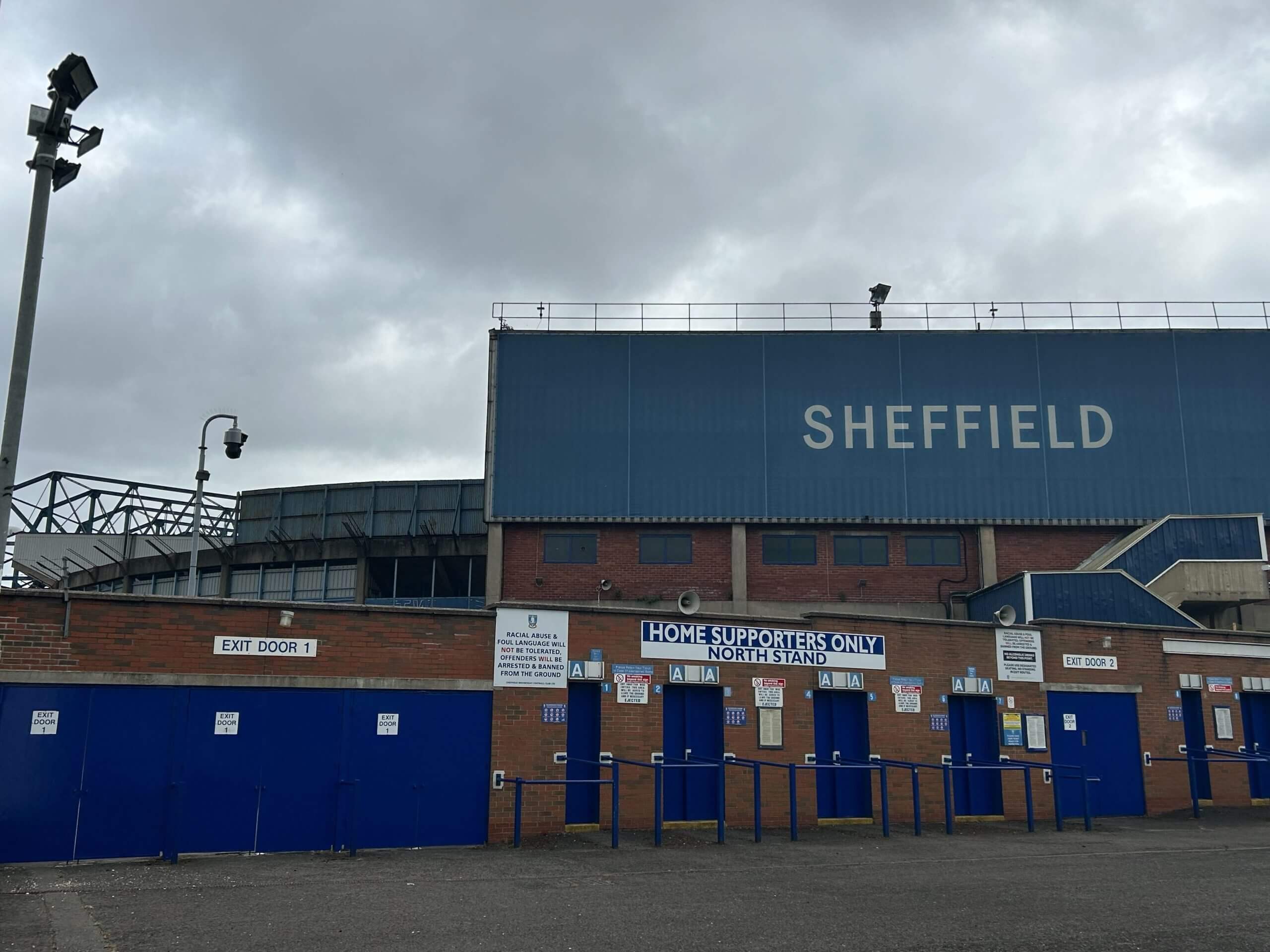
(Phil Buckingham/The Athletic)
The North American group, including Flanagan and Shaw, twice tabled bids in the hope of buying out Chansiri. In an interview with The Athletic last month, their stated aims included increasing Hillsborough’s capacity to 55,000.
Chansiri, though, claims that a failure to proceed with negotiations was not on him. He says a £5m downpayment failed to materialise ahead of advanced talks in Thailand before a pre-arranged Zoom meeting saw Chansiri’s invite go unaccepted.
Conjecture swirls around where the strained story goes from here. Chansiri’s family wealth is significant (Forbes estimated it at $585m in 2020) but there is little to suggest the club has access to it. A London-based lawyer has been appointed by TUG to engage with any potential bidders.
Milan Mandaric, who sold Wednesday to Chansiri in 2015 in what he last week described as a “healthy condition”, will not be among them. Mandaric, 86, had raised the prospect of returning to Hillsborough during an interview with BBC Radio Sheffield but has since accepted others must not be hindered if a sale process is to be smooth.
For now, Chansiri fights on. Analysis of Wednesday’s accounts indicates that in the region of £115m is now owed to the owner in the form of loans. Administration, should it come to that, would hurt Chansiri more than anyone.
“I take full responsibility for being unable to fulfil my current obligations,” he said in the statement last week. “But a further obligation I have is to ensure that if the club is sold, it is sold to the right people with the right credentials who can sustain Sheffield Wednesday and take the club forward.”
That leaves fans braced for more strife and worry ahead of a season that suggests Wednesday will be among the Championship’s weaker teams.
“There are two ways it could go,” says Silverwood. “Either the economic realities of the situation — the fact that he can’t fund the club — make him realise he has to sell. Or, alternatively, he’s going to somehow be able to cling on and things get potentially even worse.”
Silverwood is convinced the end is nigh for the Chansiri era. “His position is unrecoverable,” believes Silverwood. “But it’s a question of how long it takes and how bad it gets before the end actually comes. That’s the open question at the moment.”
And the greatest fear.
(Design: Eamonn Dalton for The Athletic; Getty Images)
